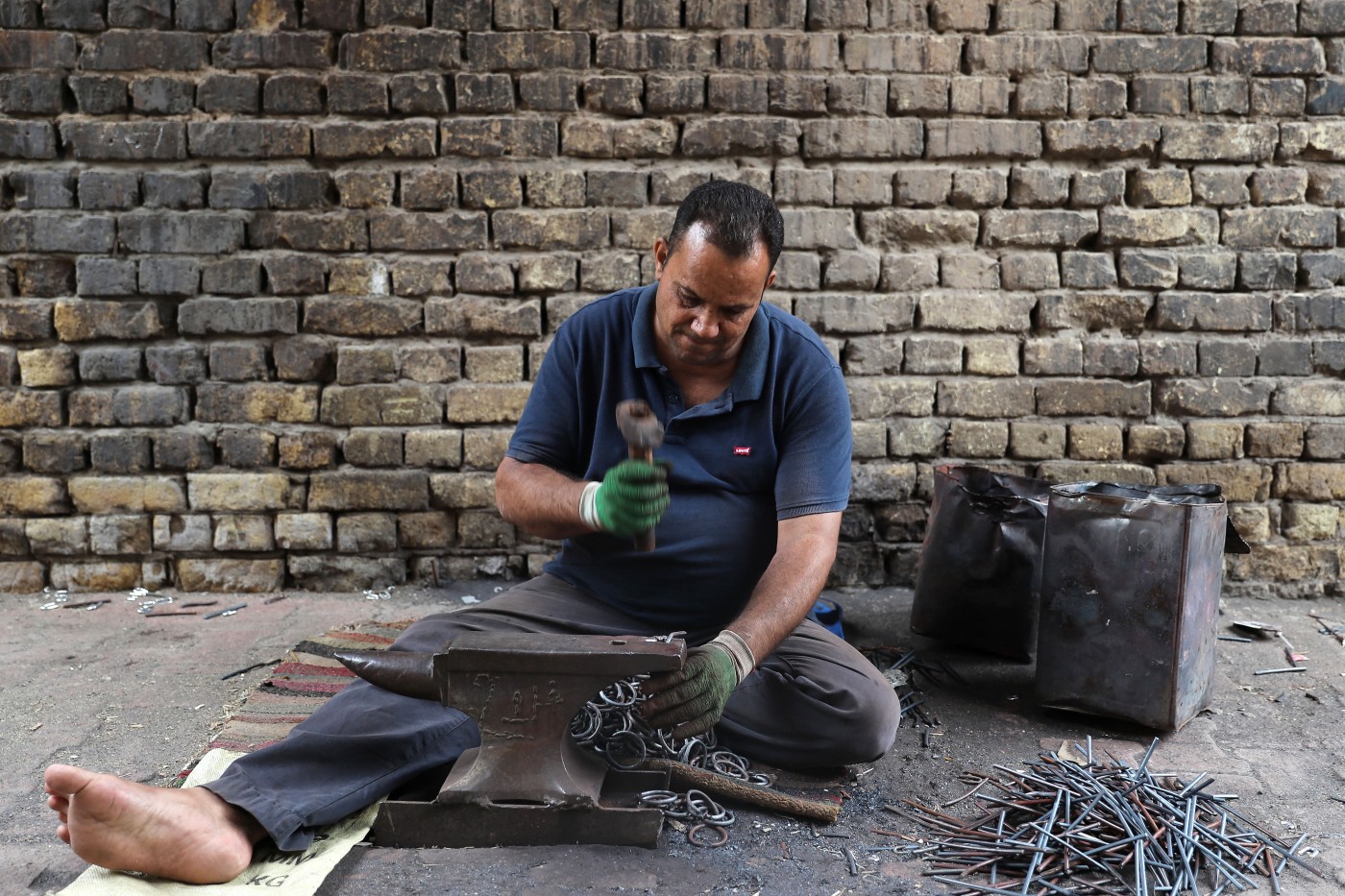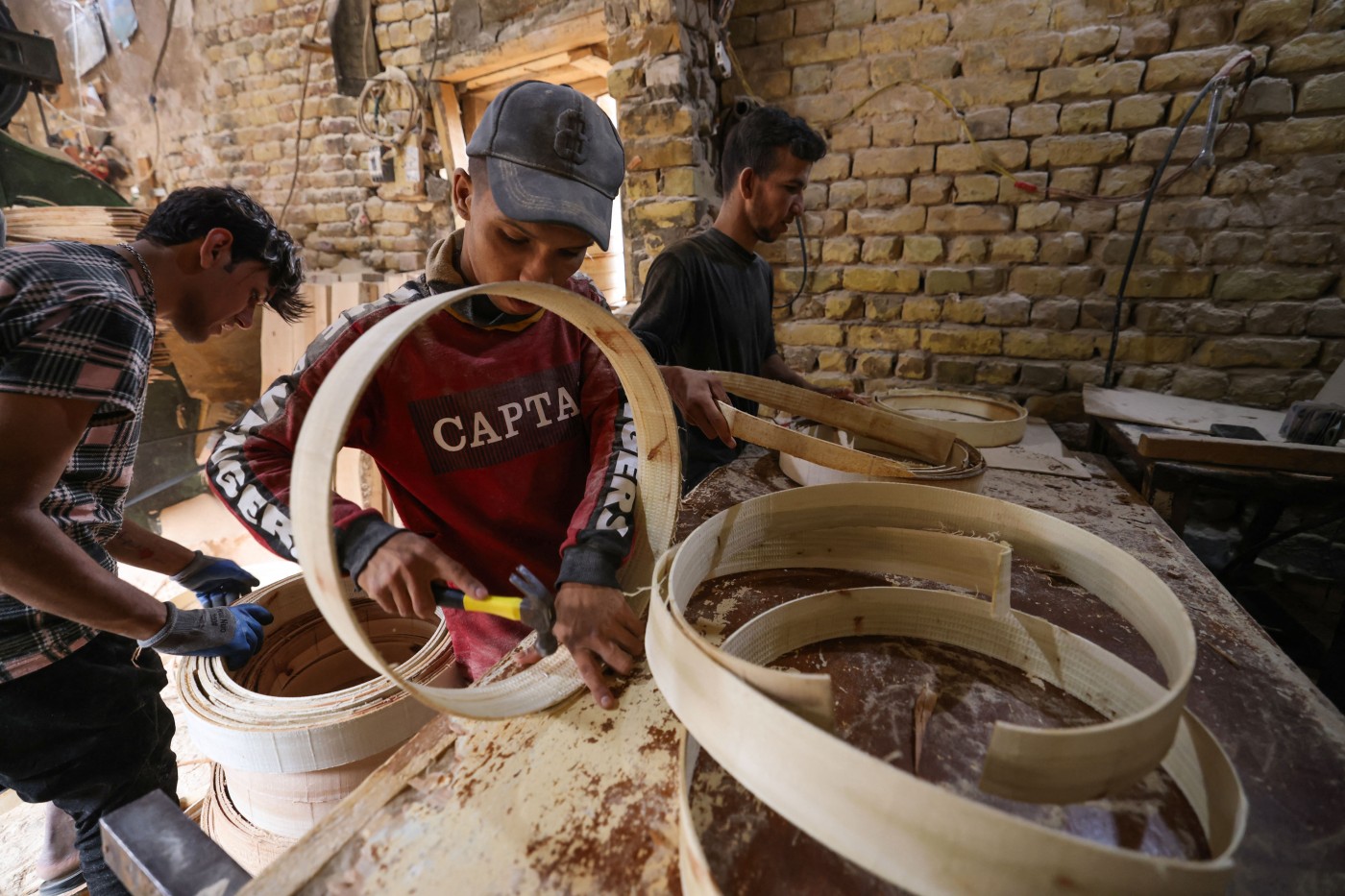Iraq joins the global celebration of Labor Day on May 1, honoring its hardworking citizens. While it's a national holiday, it is also a time to reflect on the challenges Iraq faces in terms of labor, including low wages, unsafe conditions, and most importantly, child labor.
Surviving workplace injuries is just the beginning of an endless struggle in Iraq, where the rights of the workers are lost due to employers evading their registration with social security. They also fail to provide their employees with safety tools and procedures. In addition to not paying the workers their rights.
Prime Minister Mohammed Shia’ Al-Sudani announced on December of last year, the implementation of the Retirement and Social Security Law for Workers, revealing their minimum salaries.
The Prime Minister said, as reported by Iraqi News Agency, INA, “the law has entered into action, and the number of insured workers so far is 19,000, which is a small number compared to the total workers."
He also pointed out that "the minimum salary for insured workers will be 500,000 dinars.”
Director-General of Retirement and Social Security for Workers in the Ministry of Labor and Social Affairs Department, Khuloud Heiran, announced in December last year that “social security ensures retirement pensions, health insurance, compensation for work injuries, and opportunities for every worker to be included in social security to ensure their rights are guaranteed and equalized with state employees.”
“There will be fines for employers who do not pay their workers' rights, and they will be referred, along with their projects, to the competent courts if they delay the inclusion of their workers in social security or obstruct the work of inspection committees by not cooperating,” she added.
Sudani received the Director General of the International Labor Organization (ILO), Gilbert F. Houngbo on the 27th of April during Arab Labor Conference, hosted by Iraq.
During the meeting, the Prime Minister highlighted Iraq's status as “one of the first countries in the region to join the International Labor Organization in 1932.”
He discussed with the General Director of the organization means of cooperation to develop the working environment in Iraq.
Today, Prime Minister @Mohamedshia had a productive meeting with the Director-General of the International Labour Organization, @GilbertFHoungbo.
— المكتب الإعلامي لرئيس الوزراء 🇮🇶 (@IraqiPMO) April 27, 2024
The Prime Minister welcomed Mr. Houngbo's visit, highlighting its significance as the first by an @ILO leader to Iraq. He discussed… pic.twitter.com/44K89SBUFT
However despite all this, child labor presents a notable challenge in Iraq. Iraq ranks fourth among Arab nations in child labor, following Yemen, Sudan, and Egypt. This phenomenon impedes children's access to education and compromises their rights.
Fadhil al-Gharawi, Head of the Strategic Center for Human Rights in Iraq, revealed that over 200 million children worldwide, aged 6 to 17, are part of the labor market.
According to him, the United Nations data highlights Africa as the most affected region, with approximately 72 million working children, followed by Asia and the Pacific with 62 million child workers. The Americas have 11 million child workers, while Europe and Central Asia each account for four percent, and the Arab world for three percent. Gharawi emphasized that 84 million children, constituting 56 percent of all working children, are in low-income countries.
Gharawi attributed Iraq's high child labor rates to “economic challenges like reduced family income, high unemployment and poverty rates, conflicts, displacement, increased domestic violence against children, and insufficient legal frameworks for child protection.”
He urged prompt action from the government and parliament, advocating for “the enactment of child protection laws, amendments to labor regulations, and stricter penalties for employing children in factories.”
Gharawi proposed initiatives such as “creating economic opportunities for children, establishing a Generations Fund, and designating June 12 as the National Day Against Child Labor” to address Iraq's child labor challenges and protect children's rights.
The United Nations underscores that not all work done by children should be labeled as child labor that needs to be eliminated.
According to them, “children's or adolescents' participation in work that does not affect their health and personal development or interfere with their schooling is generally regarded as something positive.”
However, child labor, as defined by international law and national legislation, involves work that “either deprives children of schooling or requires them to assume the dual burden of schooling and work,” and includes the unconditional worst forms such as slavery, prostitution, or hazardous work.
PM Sudani stressed during the opening speech of the 50th session of the Arab Labor Conference the need to work on improving “the performance of labor market institutions and elements and building a relationship between education outputs and labor market needs, in addition to attracting women to work as a productive force that cannot be sidelined and reducing child labor.” An Iraqi blacksmith hammers iron in the Al-Shawaka neighbourhood in Baghdad on April 30, 2024. (Photo by AHMAD AL-RUBAYE / AFP)
An Iraqi blacksmith hammers iron in the Al-Shawaka neighbourhood in Baghdad on April 30, 2024. (Photo by AHMAD AL-RUBAYE / AFP)
As Iraq commemorates Labor Day on May 1 each year, it not only celebrates the hard work and dedication of its citizens but also reflects on the challenges that persist within its labor force. While the day serves as a reminder of the value of labor in fostering stability and prosperity, it also sheds light on ongoing issues such as low wages, unsafe working conditions, and the persistent problem of child labor.



 Facebook
Facebook
 LinkedIn
LinkedIn
 Telegram
Telegram
 X
X


